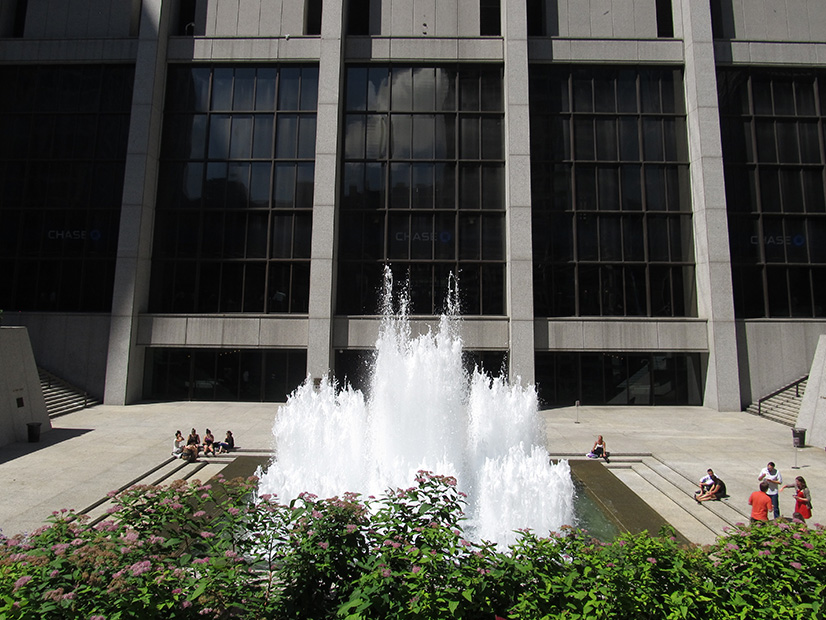
FERC on Friday approved a $1.8 million penalty against Exelon’s utilities, part of a settlement between the subsidiaries and ReliabilityFirst for violations of NERC reliability standards (NP23-17).
NERC submitted the settlement to the commission in a Notice of Penalty on May 31, along with a separate spreadsheet NOP concerning violations of the Critical Infrastructure Protection (CIP) standards (NP23-16). The spreadsheet NOP was not made public because FERC considers CIP violations to be critical energy infrastructure information. FERC said in its Friday filing that it would not further review any of the settlements, leaving the penalty intact.
Exelon utilities Atlantic City Electric (ACE), Delmarva Power and Light (DPL), Pepco, Baltimore Gas and Electric (BGE), Commonwealth Edison and PECO Energy collectively provide electric service to nearly 9 million people in New Jersey, Maryland, Delaware, Virginia, Illinois, Pennsylvania and D.C.
RF’s settlement with the companies stems from violations of FAC-009-1 (establish and communicate facility ratings), which required that transmission owners and generator owners establish facility ratings that are consistent with an established facility ratings methodology. (The standard was replaced in 2013 by FAC-008-3.) The compliance issues were initially identified by ACE, DPL and Pepco; their discovery prompted BGE, ComEd and PECO to conduct investigations, which unearthed their own ratings issues.
ACE kicked off the investigation process in April 2019 after it discovered that it had placed a transmission line back into service without communicating the updated facility rating to PJM. The discovery led ACE to compare more facility ratings against PJM’s records to ensure that all of the RTO’s records were accurate. However, the utility found more inaccuracies in this review, prompting Exelon to expand the scope of the reviews to include DPL and Pepco. Exelon first informed RF of the issues — through the regional entity’s legal team — following this expansion in July 2019.
In December 2019, while the reviews were underway, RF issued an audit notification letter to the utilities. As part of the audit, the RE notified the utilities that they were in violation of FAC-008-3. The review continued through March 2021, when the three utilities identified 235 out of their 349 facilities that required facility rating changes.
BGE, ComEd and PECO reported to RF in July 2020 that they were also in violation of FAC-008-3, having begun their own reviews the year before as a result of the widespread issues discovered by ACE, DPL and Pepco. Their reviews, completed in December 2022, found 278 total misratings across their collective 1,504 facilities.
RF determined that the violations by all six utilities began in June 2007, when FAC-009-1 took effect. They ended in March 2021 in the case of ACE, DPL and Pepco, and in December 2022 for the remaining companies; these dates indicate when the extent of condition reviews were completed and all discrepancies officially corrected.
The RE found that the violations posed a serious risk to grid reliability in the cases of ACE, DPL, Pepco and PECO, and a moderate risk for the other two utilities. Explaining this assessment, RF said that the number of errors and their duration both indicate “a longstanding, systemic issue” with the utilities’ facility ratings practices. It further noted the large adjustments needed in some cases (one facility required a reduction of up to 66%) and that more than a dozen facilities were found to have operated near or above their corrected ratings.
RF attributed the violations to “insufficient internal controls throughout each company’s facility ratings program and processes.” It noted that “multiple teams at various steps” contributed to each utility’s overall facility ratings process, without enough care taken to ensure accurate recording of information at each stage, increasing the potential for human errors.
In the case of the initial three utilities, the RE suggested that a “lack of clear overall ownership and accountability for the … facility ratings program” also exacerbated the risk, along with a lack of formal training for relevant teams. For the remaining utilities, RF found that they had failed to maintain or confirm facility baselines, in some cases relying on baselines developed by third parties that were not adequately reviewed prior to adoption.
ACE, DPL and Pepco committed to more than 25 mitigating activities including implementing additional controls for data accuracy; establishing a new standard repository for relay load limits; committing to regular updates for stakeholders involved in the facility ratings process; and creating a new common facility ratings database. Actions by BGE and the other utilities include completing a full review of the extent of the conditions and implementing a common tool for documenting equipment and facility ratings across all Exelon companies.
RF noted the utilities’ cooperation throughout the process, including their self-disclosure of the suspected noncompliance and their willingness to conduct full physical walkdowns of their facilities “within a relatively short time frame” as reason for mitigating the penalty. On the other hand, the RE said that a previous compliance issue related to FAC-008 served as an aggravating factor in the penalty determination because the utility “failed to identify the full breadth of their systemic issue with facility ratings.”



